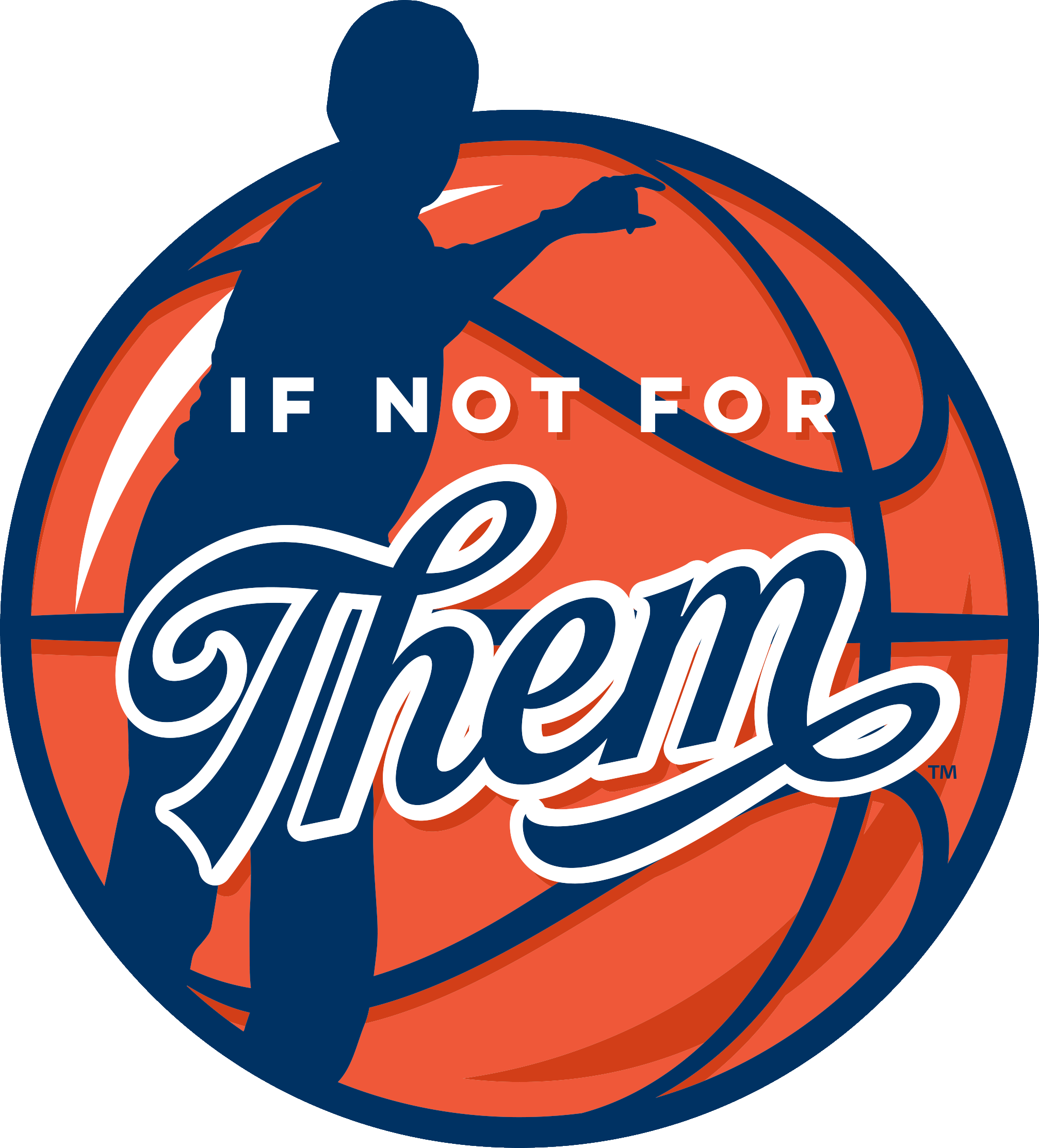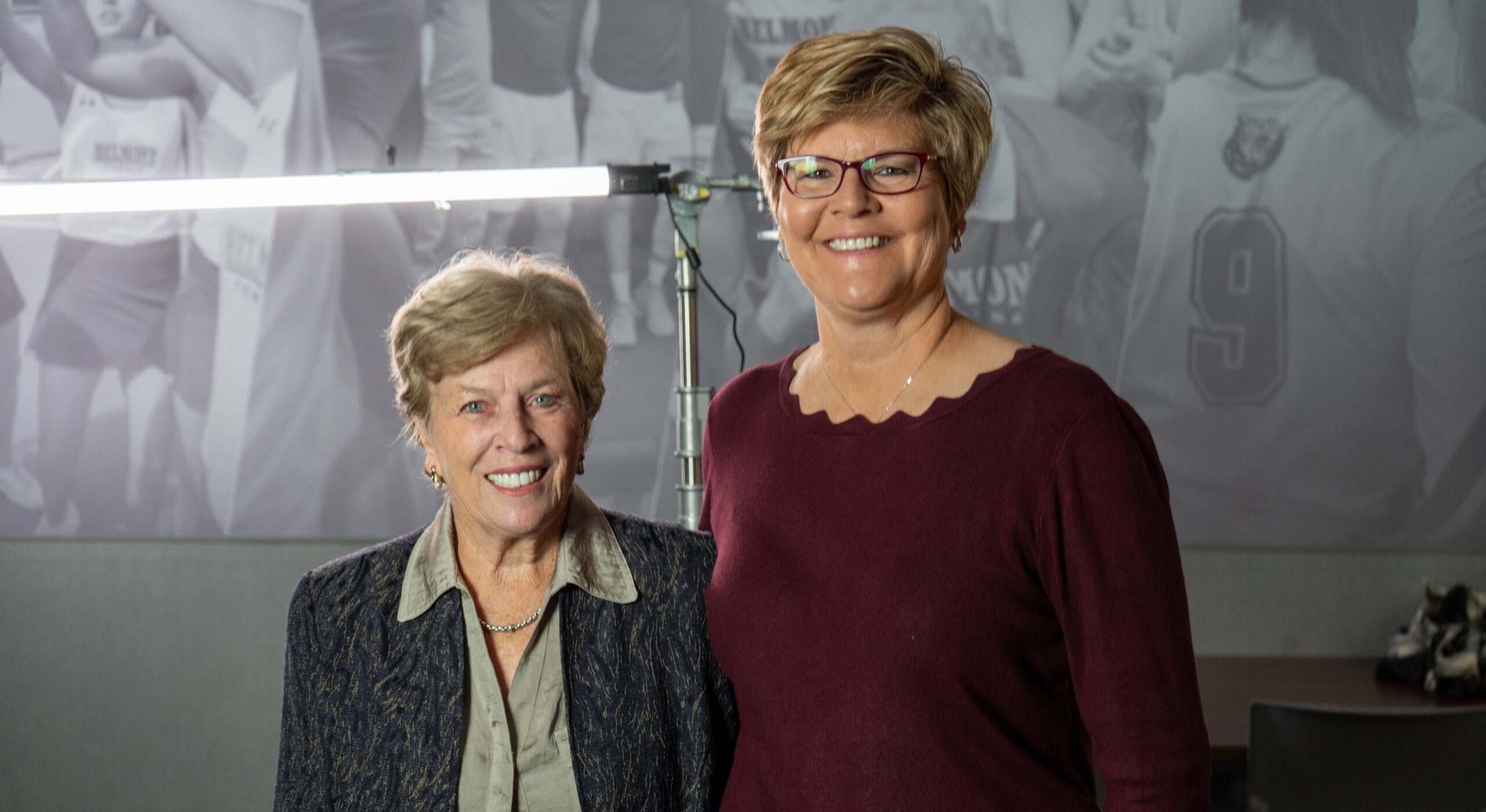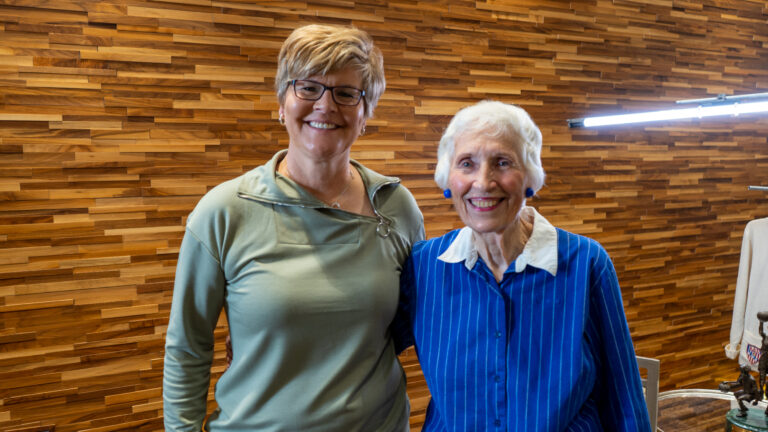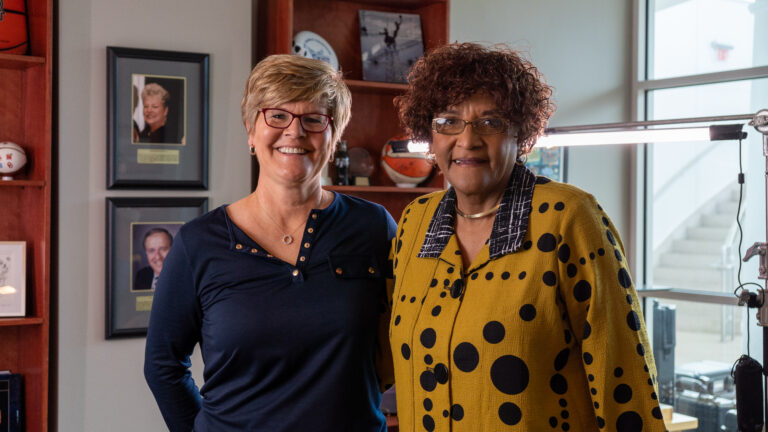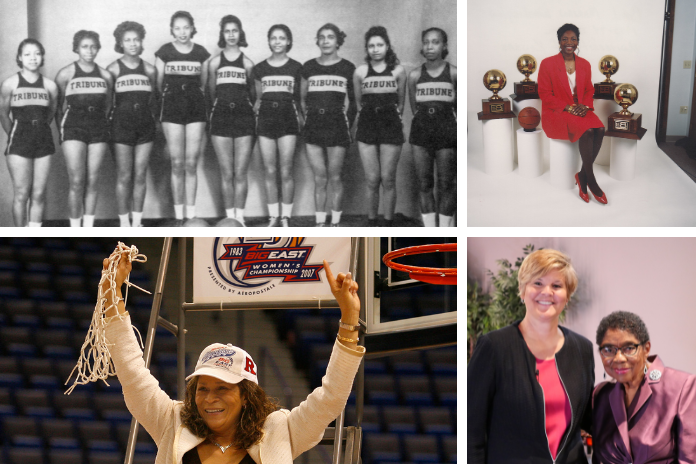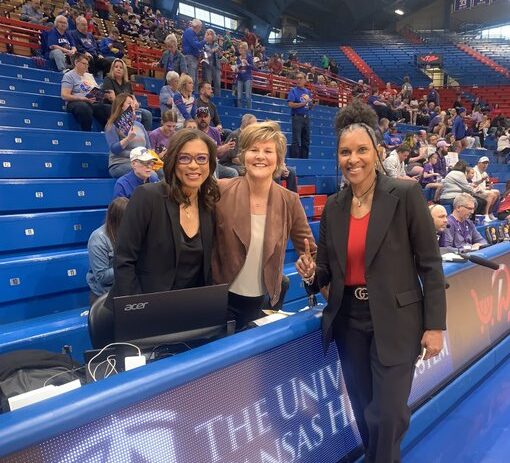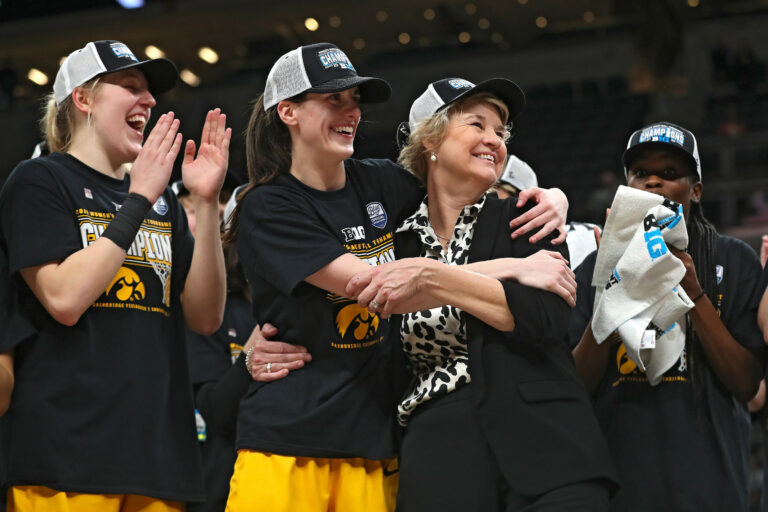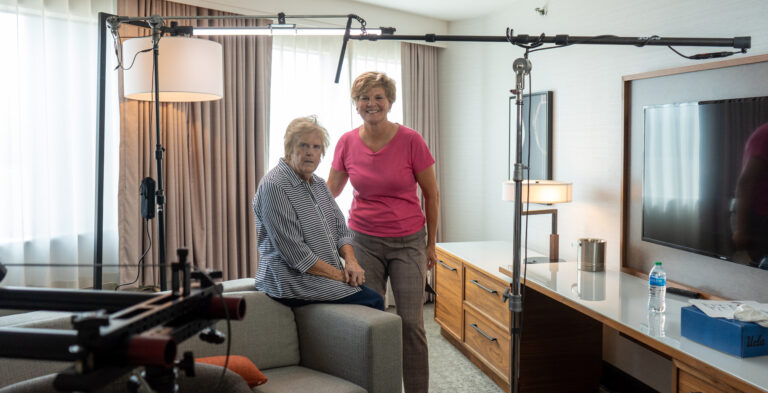Belmont University was the host for Executive Producer Brenda VanLengen and the Real Media crew during a day of interviews for subjects from around Nashville and others who traveled in to meet up with us. Thank you to Renee Schultz and Belmont for your hospitality! Nashville was the location with our most number of interviews in one day, so this is a long post …
Bettye Giles was born in 1929 and loved playing football with the boys. There were no organized sports for girls, but she enjoyed movement and competition and found ways to play. When she attended Austin Peay in the late 1940s, then the University of Tennessee for her Masters in the early 1950s, she became very aware that women were being shortchanged in opportunities for sports. She worked hard over the next several decades to make changes. While serving as a physical education instructor and leader of intramurals at UT-Martin, she went to a boy’s basketball game with a friend to watch her son play. Bettye saw a tall, lanky girl playing with the boys and outplaying many of them. It fueled her fire to make sure girls like her had more opportunities. That girl was Pat Head, later known to the basketball world as Pat Summitt who won 1,098 games and eight NCAA National Championships as a Hall of Fame coach at the University of Tennessee. Pat attended UT-Martin where Bettye Giles was the Women’s Athletic Director and credits Miss Bettye with opening the doors for the opportunities in her career.
While Bettye was building the program at UT-Martin, Marynell Meadors was forging her path growing up in Tennessee. The 2009 WNBA Coach of the Year, who took the Atlanta Dream to the 2010 WNBA Finals, grew up in Nashville where there was not a girls’ basketball team at her high school in the late 1950s. So, her family moved! They moved to a house in a more rural area where the school had a team just so Marynell could have the opportunity to play. This was 1957. Is it a wonder why Marynell battled so hard for opportunities for girls and women throughout her career? In addition, she met future women’s basketball legend Sue Gunter when Marynell’s parents hosted the national champion Nashville Business College’s players over the holidays. Marynell said, “My mother loved to cook and Sue Gunter loved to eat!” Sue Gunter was Marynell’s coach for a couple of years at Middle Tennessee before Sue went on to a successful career coaching at Stephen F. Austin, then LSU. Marynell went on to start and coach the Tennessee Tech program which was the best program in Tennessee for many years.
One of her players at Tennessee Tech, Dianne Murphy, who has been an advocate for girls and women in sports throughout her career, caught up with us in our Real Media Studio during the Women Leaders in College Sports National Convention. She currently works for the PICTOR Group which helps intercollegiate athletic programs expand opportunities. Dianne’s father took her to see Nashville Business College play during the 1960s when they were the most dominant AAU team in the country. He supported and encouraged her interest in basketball – a “Girl Dad” before it was called that. Betty Wiseman (who we’ll talk about later) offered Dianne an opportunity to play basketball at Belmont, which changed Dianne’s life. Someone believed in her and her basketball abilities and it made all the difference. She was not able to attend Belmont, but went to Tennessee Tech where she was frequently in the President’s office asking for more money for the women’s basketball program.
Betty Wiseman was such a good basketball player in high school in Portland, Tenn., that she felt limited by the half-court 6-on-6 game that girls played in that era and ended up practicing with the boys to fulfill her potential. Nashville Business College won the 1958 and 1960 National Championships while Betty was in high school and their coach, John Head, recruited her to play for his team. But, Betty wanted to be a teacher and attend Belmont for her education. When the President of Belmont University told her she had a tough choice to make – because she couldn’t attend Belmont and miss so much school to play for Nashville Business College — she decided to turn down John Head and NBC. She knew it was the right decision for her, even though she only ever played intramural basketball at Belmont. But, she went back to that same President with a proposal to start a women’s basketball program. He had many questions and concerns, but she said “I will make it happen if you say yes.” He did and she did and created many extraordinary moments she shared in her emotional interview with us.
Through our travels, we’ve had the opportunity to interview several women who played for Nashville Business College – Doris Rogers and Jill Upton plus Joan Crawford and Dixie Woodall. We’ve gathered stories about possibly the greatest player to ever play the game, the late Nera White, as well as the late Sue Gunter and others on the team. NBC won 11 national championships between 1950 and 1969 on the AAU Circuit, which was the only organization to provide women’s basketball national championships before 1969. That dominant streak included eight straight titles from 1962-69.
In Nashville, we met another woman who played for that program, Judy Coble. At 86, Judy is still umpiring girl’s softball and contributing to girls and women in sports in that important way. Judy grew up in North Carolina and remembers the Hanes Hosiery teams that won three straight AAU Championships from 1951-53. But, there were no real options for Judy to play beyond high school, that she knew of. However, she met Nera White on the softball field and was encouraged to join NBC. From 1960-64, while Judy was on the team, NBC won four national championships. She went on to become (who we believe to be) the first women’s basketball official in Tennessee and paved the way for many women in the profession.
Teresa Lawrence Phillips was probably one of the players she officiated. Teresa went to Vanderbilt for her college education and joined the basketball team, which was a club sport, in her freshman year. When the women’s basketball program was formed the following year, in 1977-78, Teresa was the first Black female student-athlete to compete intercollegiately for Vanderbilt. She was also the first winner of the Lady Commodore Athlete of the Year recognition for the best all-around female athlete, as she competed in three sports. Teresa went on to coach basketball at Vanderbilt, Fisk University and Tennessee State before she was hired as the Athletic Director at Tennessee State in 2002. She served in that role for 18 years. She attributes much of her success to her mother, Betty Lawrence, who raised her to believe that girls could do anything. Betty encouraged Teresa to take the entrance test for the Girls Preparatory School (GPS) in Chattanooga though she knew they couldn’t afford to send her there. When Betty told Lucy Thatcher, the woman for whom she worked, that Teresa had qualified for GPS, Lucy and her friends put together money and created a foundation so that Teresa could attend. Teresa was only the second Black girl to attend the school and the first student-athlete. She learned leadership skills that helped her throughout her life.
Peggie Gillom-Granderson didn’t grow up in Tennessee, but she made the drive to Nashville from her home in Oxford, Miss., where she still serves as Chaplain at the University of Mississippi. At Ole Miss, Peggie remains the all-time leading scorer and rebounder. She, and her sister Jennifer, also have a building named in their honor – the Gillom Athletics Performance Center. While in high school, Peggie was recruited by the legendary Head Coach of Delta State, Margaret Wade. Peggie was excited about the possibility of joining Olympian Lusia Harris at Delta State, but her mother was very strict and would only allow her to go to the school her brother was attending, Ole Miss. As the first Black women’s basketball player at Ole Miss, Peggie was part of the team that upset the then two-time defending National Champion, Delta State, in the 1976-77 season. During her playing career at Ole Miss, Peggie played for future WNBA Champion coaches Lin Dunn and Van Chancellor. In her senior year, she was a finalist for the Wade Trophy Award, given to the top player in women’s college basketball. She still has the handwritten letter from Coach Wade congratulating her on the honor. Peggie went on to play in the women’s professional basketball league, the WBL, then coached for years with Van Chancellor at Ole Miss and with the Houston Comets in the WNBA. The CSPIRE Gillom Trophy is presented to Mississippi’s top collegiate women’s basketball player by the Mississippi Sports Hall of Fame and Museum every year since 2008.
Finally, Marianne Crawford Stanley, has a playing and coaching career that spans five decades and has taken her all over the world. Ironically, she’s never coached for a team based in Tennessee but graciously traveled to join us in Nashville. It can be argued that no one had more success in the AIAW era than Marianne Stanley. In nine years as a player and coach in AIAW competition, she was part of eight “Final Fours,” won four national championships and finished as runner-up twice. The only year she wasn’t in the “Final Four,” her ODU team won the NWIT Championship. The two national championships she won as a player at Immaculata almost didn’t happen as she originally enrolled at West Chester State College. She didn’t even meet West Chester’s Coach Carol Eckman while on campus but decided it wasn’t for her and transferred to the campus of defending national champion Immaculata 10 minutes across town. Marianne, the talented point guard that honed her skills in the Philadelphia Catholic School leagues, led Immaculata to championships in 1973 and 1974 alongside teammate Theresa Shank (Grentz). They were runners-up to Delta State in 1975 and 1976. After serving as an Assistant Coach to Cathy Rush at Immaculata for a year, the 23-year-old was hired as the Head Coach at Old Dominion where future Hall of Famers Nancy Lieberman and Inge Nissen were already on the team. ODU won the WNIT Championship in 1978, then won back-to-back AIAW National Championships in 1979 and 1980. The last AIAW Tournament where all teams competed, in 1981, ODU lost to Pat Summit’s Tennessee squad in the national semifinals. Marianne has an NCAA Championship to her credit, as well, leading ODU to the 1985 NCAA Championship, making five Women’s College Basketball Championships – two as a player and three as a coach. Throughout the rest of her career, she was on the sideline for many of the top NCAA programs and WNBA organizations impacting and influencing generations of elite women’s basketball players. She also won a WNBA Championship as an assistant coach with the Washington Mystics in 2019.
Photos from the trip are featured on the Gallery page. For those that would like to support this project and have their names displayed on the If Not For Them website and included in the credits of the documentary series, you can Join the Team.
